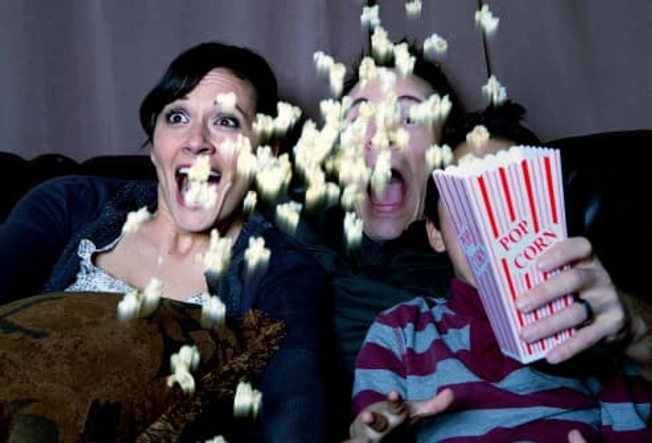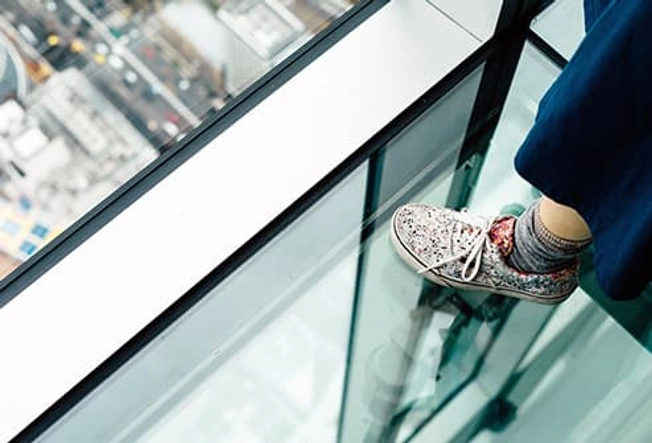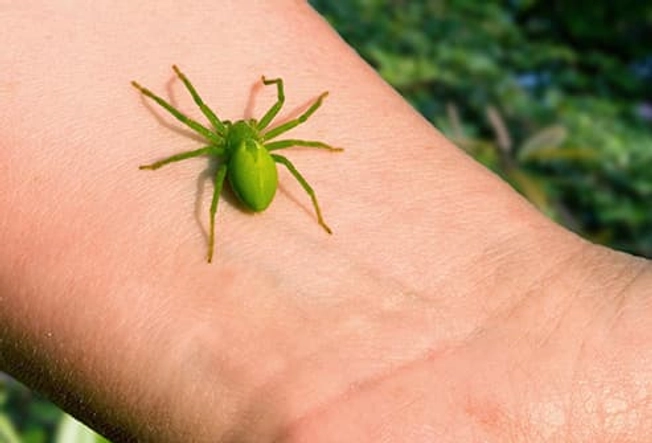13 Things That Scare the Pants Off You


Roller Coasters
Our lives aren’t quite as exciting as they used to be -- no more running from predators, for example. But our brains are still wired for that chase. A thrill ride puts you in touch with your primal self: You get the rush of being scared without the stampeding woolly mammoth.

Horror Movies
These scary things don’t just appear -- we seek them out and pay money for them. Why in the name of Linda Blair do we do that? An older theory goes that some people aren’t afraid of horror as much as they’re excited by it. But a newer idea is that we can feel both positive and negative emotions at the same time: Some of us seriously enjoy being scared.

Clowns
There’s just something creepy about a clown’s face -- close to normal, but not quite. Whether it’s a clown or a mask, things that are uncanny often creep us out and make us uncomfortable.

Heights
A fear of being up too high is good for you -- it keeps you from playing hopscotch at the edge of a cliff. But taken too far, it can be irrational and unhealthy. Say, if you refuse to move to your company’s new high-rise office, for example. That would make it a phobia -- when you’re really afraid of something even when it isn’t that dangerous.

Flying
Many of us aren’t wild about going up in the air in a bus with wings. But if the fear is so strong that it causes a problem with your job or keeps you from visiting family, you may have aviophobia. It starts with a panic attack -- sudden, intense fear -- on a plane. It may happen after a major life event (a wedding, funeral, or divorce, for example). If you have one, there’s a good chance you won’t want to fly again.

Spiders
Even if you know it’s harmless, you probably get a little creeped out when you think of one crawling on your arm. Your cortex is trying to reason with your fight-or-flight reflex (controlled by your amygdala). Sometimes, the amygdala just wins.

Snakes
For a moment, your reaction may be the same whether it’s a snake or just a curvy stick in the backyard. Before you have time to figure it out, your amygdala sends a lightning-quick response that says, “Danger!” If it really is a snake, that extra split second might save your life.

Dentists
Maybe you’re scared they’ll say you need some painful work done. Or you don’t like the idea of someone’s hands in your mouth. Or maybe it’s the bill that follows. Whatever the reason, it’s a real fear. There’s even a word for it: odontophobia.

Needles
Feel lightheaded or faint when you think about getting a shot or see blood? You’re not alone. It’s called blood-injection-injury phobia, and up to 10% of adults have it at some point in their lives. Some may have had a lot of blood tests or allergy shots as children, but not everyone has a reason for this fear.

Sudden Loud Noises
A bang! can cause a “startle response,” which puts you on high alert and can make your muscles tense and even jump. Your conscious brain (cortex) tries to make sense of the situation: “Don’t be dramatic,” it says. “That was clearly the neighbor’s old clunker backfiring in the driveway.”

Sharks
Humans are more aware of things that can cause immediate harm. So we’re likely to be more scared of Jaws than, say, heart disease. That was once a good thing. But in the modern world, we may not even think about the biggest dangers to our survival, much less be afraid of them. (Hint: More people die of heart disease than shark attacks.)

Cats
The fear and superstition linked to black cats is a pretty recent -- and mostly American -- thing. They were sacred animals in ancient Egypt, and people in many places in Europe and Asia still think they’re lucky. But if you have ailurophobia (a fear of cats), you may invite trouble without knowing it: They love people who sit still and don’t look at them!

Dogs
Fear of an aggressive dog is a good thing. But intense fear of every dog, no matter how small or unthreatening, could be a sign of a phobia. Exposure therapy helps some people get past it. A mental health professional puts you near a dog for a short time, in a safe place, and then slowly brings you closer for longer periods.